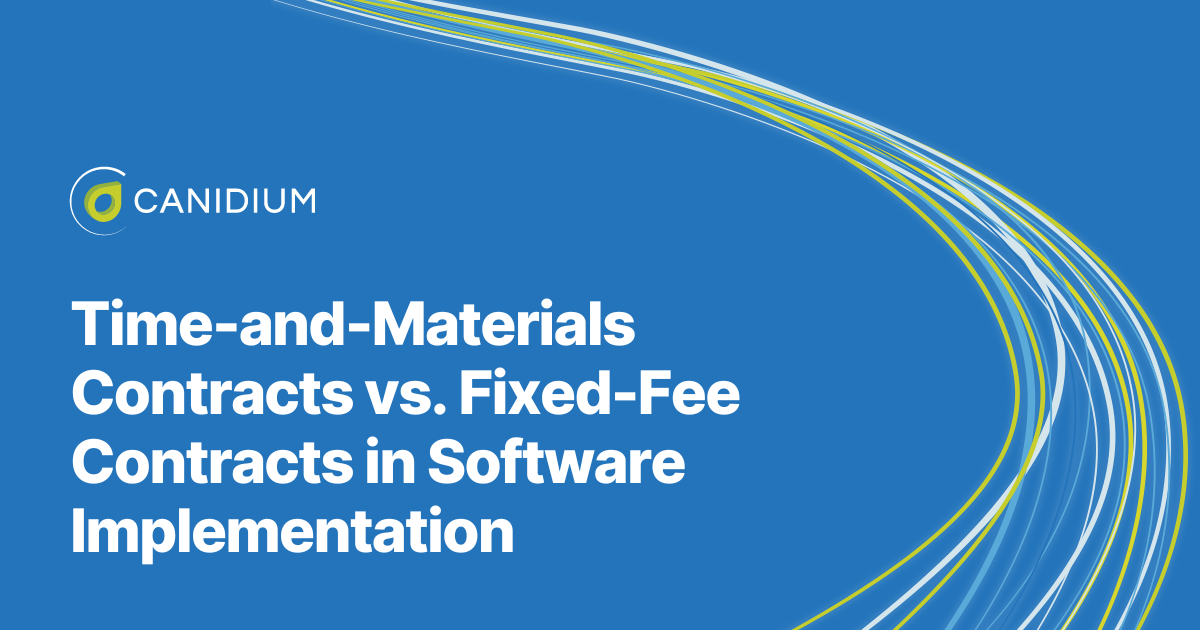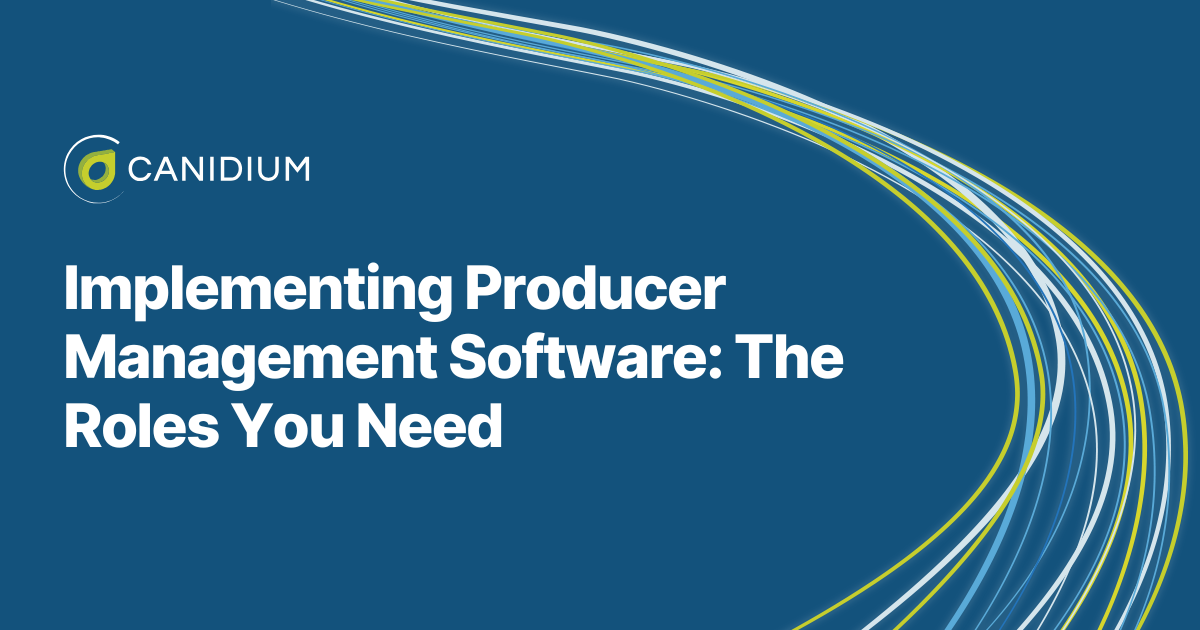When embarking on a software implementation project, one critical decision to make is choosing the appropriate contract type.
Time-and-materials (T&M) contracts and fixed-fee contracts are two common options. Each has its pros and cons, and understanding the differences can help you make an informed decision based on the specifics of your project.
Here at Canidium, we have been implementing software since 2008. We typically use a fixed-fee contract for software implementation, but not exclusively. Above all else, we ensure contracts are all-encompassing by performing a very thorough discovery process. This enables us to understand the complete scope of what our clients need their software solution to do.
In this article, we will compare and contrast these two contract types in the context of software implementation. By the end of this article, you will have a better understanding of these contract types and be better equipped to choose the best fit for your project.
What is a Time-and-Materials Contract?
A time-and-materials contract is a type of project agreement where the client compensates the contractor based on the actual hours worked and resources expended during the project. This contractual arrangement is commonly opted for in situations where the project's scope is uncertain or likely to evolve over time. Additionally, it is suitable for smaller projects where the client has a precise understanding of the required deliverables. This flexible approach allows for adjustments to be made as the project progresses, accommodating changes in scope and requirements.
Pros of Time and Materials (T&M) Contracts
We've compiled pros and cons for time and materials (T&M) contracts to help you understand the ideal use cases. First, let’s discuss the pros of T&M contracts.
Flexibility
One significant advantage of T&M contracts is their flexibility. They allow for adjustments and changes throughout the project as the customer better understands their requirements. This adaptability is particularly beneficial in software implementation, where evolving needs and technology can shift project scope.
Transparency
Another benefit of time-and-materials contracts is transparency. When using these types of contracts, the customer has a clear view of the resources and time expended, enabling better tracking of progress against the budget. This transparency helps ensure project accountability and allows for better control over costs, making it suitable for larger software implementation endeavors.
Cons of Time and Materials (T&M) Contracts
It’s not all pros, however. Let’s look at the potential drawbacks of choosing a T&M contract type.
Associated risk
As the customer, you bear the risk of the project taking longer or costing more than anticipated. Unforeseen issues or changes in requirements can disrupt project timelines and budgets, potentially leading to higher expenses.
Loss of efficiency
Another drawback of T&M contracts is the absence of a strong incentive for vendors to work efficiently. Since they are paid for the time and materials utilized, there is no direct motivation for them to complete the project swiftly. This can result in potential inefficiencies and increased costs.
What is a fixed-fee contract?
Fixed-fee contracts involve a predetermined, fixed cost for the entire software implementation project.
They are often favored when:- The project scope is well-defined and unlikely to change significantly
- The client has to adhere to a strict budget allocation
Pros of a fixed-fee contract
There are a few possible benefits of choosing a fixed-fee contract. Here they are.
Predictability
Predictability is a key advantage of fixed-fee contracts. With a clear upfront cost, customers have greater financial control and can plan their budgets accordingly. This predictability is particularly beneficial for smaller software implementation projects with limited scope.
Incentive for efficiency
Additionally, fixed-fee contracts strongly incentivize vendors to work efficiently. Since they will not receive additional compensation for extra time or resources, they are motivated to complete the project within the agreed-upon budget and timeline. This can result in cost savings and faster project delivery.
Cons of a fixed-fee contract
Here are the potential downsides to a fixed-fee contract that you need to consider before deciding.
Lack of flexibility
Their inflexibility can pose challenges if the project requirements evolve or change during implementation. Any modifications to the original scope may incur additional charges, making it difficult to accommodate new needs without incurring extra costs.
Lack of transparency
Moreover, fixed-fee contracts lack the transparency provided by time-and-materials contracts. Customers do not have a clear view of the breakdown of time and resources utilized, which can limit their ability to track progress against the budget and make informed decisions regarding project milestones.
Choosing the Right Contract Type
Selecting the most suitable contract type for your software implementation project requires carefully evaluating your specific circumstances and priorities.
When to choose T&M
Time-and-materials contracts are ideal when the project scope is uncertain, and flexibility is crucial. If your organization expects evolving requirements or anticipates the need for frequent adjustments, this contract type provides the necessary adaptability.
When to choose fixed-fee
On the other hand, fixed-fee contracts are preferable when the project scope is well-defined and stable. They offer predictability and a strong incentive for vendors to work efficiently, making them suitable for projects with clearly defined requirements and limited potential for changes.
So, which contract type is right for your project?
Choosing the right contract type for your software implementation project can be the difference between success and failure. Unless you choose wisely, you could end up exceeding the deadline and budget and/or not achieving the desired results.
Ultimately, the choice between time-and-materials and fixed-fee contracts depends on the nature of the software implementation project and the level of flexibility desired.
At Canidium, we believe in creating contracts that keep projects on target and address our clients' software solution needs. This is usually a fixed-fee contract because it forces our clients to vet requirements and desired capability very thoroughly. We find this makes for a much more satisfactory result.
The reality is that either type of contract will work if managed properly with diligence.
Want to learn about how we do things at Canidium? Fill out the form below or read this article about our implementation process.








